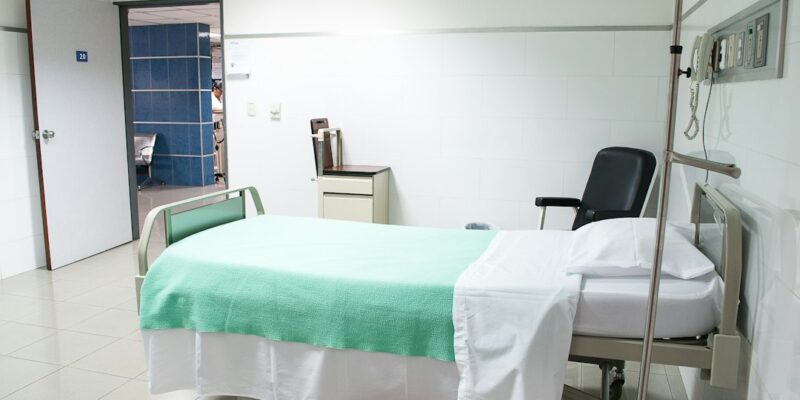
Strong Bones for Life: Essential Healthy Habits for Optimal Bone Health
Strong bones are essential for overall health and well-being. They provide support for our bodies, protect vital organs, and allow us to move and perform daily activities. Maintaining strong bones is crucial at every stage of life, from childhood to old age. However, as we age, our bones naturally become weaker and more prone to fractures. This is why it is important to adopt healthy habits and take proactive steps to maintain bone health.
Key Takeaways
- Strong bones are important for overall health and quality of life.
- Healthy habits such as regular exercise and a balanced diet can help maintain optimal bone health.
- Calcium and vitamin D are essential nutrients for strong bones.
- Avoiding bone-damaging habits such as smoking and excessive alcohol consumption is important for bone health.
- Regular bone density tests and prevention strategies can help manage osteoporosis and other bone conditions.
Healthy Habits for Optimal Bone Health
Adopting healthy habits is key to maintaining strong bones. Lifestyle factors such as smoking, excessive alcohol consumption, and chronic stress can have a negative impact on bone health. Smoking has been linked to decreased bone density and an increased risk of fractures. Excessive alcohol consumption can interfere with the body’s ability to absorb calcium, a vital nutrient for bone health. Chronic stress can also affect bone health by increasing the production of cortisol, a hormone that can lead to bone loss.
To promote optimal bone health, it is important to quit smoking, limit alcohol consumption, and find healthy ways to manage stress. Engaging in regular exercise, eating a balanced diet, and getting enough sleep are also important habits for maintaining strong bones.
Exercise for Strong Bones
Exercise plays a crucial role in building and maintaining bone density. Weight-bearing exercises, which involve bearing your own body weight through your feet and legs, are particularly beneficial for bone health. These exercises help stimulate the cells responsible for building new bone tissue.
Examples of weight-bearing exercises include walking, jogging, dancing, hiking, and stair climbing. Strength training exercises that target the major muscle groups, such as weightlifting or using resistance bands, can also help build and maintain bone density.
It is recommended to engage in weight-bearing exercises for at least 30 minutes most days of the week. However, it is important to consult with a healthcare professional before starting any new exercise program, especially if you have any pre-existing medical conditions.
A Balanced Diet for Bone Health
| Food Group | Nutrient | Recommended Daily Intake | Benefits for Bone Health |
|---|---|---|---|
| Dairy | Calcium | 1000-1300 mg | Builds and maintains strong bones |
| Leafy Greens | Vitamin K | 90-120 mcg | Improves bone density and reduces fracture risk |
| Fatty Fish | Vitamin D | 600-800 IU | Helps the body absorb calcium and improves bone health |
| Whole Grains | Magnesium | 310-420 mg | Improves bone density and reduces fracture risk |
| Protein | Phosphorus | 700-1250 mg | Works with calcium to build strong bones |
| Fruits and Vegetables | Antioxidants | Varies | Reduces inflammation and protects bone health |
Nutrition plays a crucial role in maintaining strong bones. A balanced diet that includes a variety of nutrient-rich foods is essential for bone health. Calcium and vitamin D are two key nutrients that support bone health.
Calcium is the main mineral found in bones and is essential for their strength and structure. Good sources of calcium include dairy products such as milk, cheese, and yogurt, as well as leafy green vegetables, tofu, and fortified plant-based milk alternatives.
Vitamin D is necessary for the body to absorb calcium. The body can produce vitamin D when the skin is exposed to sunlight, but it can also be obtained from certain foods such as fatty fish (e.g., salmon, mackerel), egg yolks, and fortified foods like cereals and orange juice. In some cases, supplements may be necessary to ensure adequate vitamin D intake.
In addition to calcium and vitamin D, other nutrients that support bone health include magnesium, phosphorus, vitamin K, and protein. A well-balanced diet that includes a variety of fruits, vegetables, whole grains, lean proteins, and healthy fats can help ensure adequate intake of these nutrients.
Calcium and Vitamin D: Essential Nutrients for Bone Health
Calcium and vitamin D are essential nutrients for maintaining strong bones. Calcium is necessary for bone formation and maintenance, while vitamin D helps the body absorb calcium from the diet.
The recommended daily intake of calcium varies depending on age and gender. For adults aged 19-50 years, the recommended daily intake is 1000 mg for men and women. For adults over 50 years of age, the recommended daily intake increases to 1200 mg for both men and women.
Vitamin D requirements also vary depending on age. The recommended daily intake for adults aged 19-70 years is 600 IU (International Units), while adults over 70 years of age should aim for 800 IU.
In addition to dietary sources, supplements may be necessary to ensure adequate intake of calcium and vitamin D, especially for individuals who have limited sun exposure or have difficulty meeting their nutrient needs through diet alone. It is important to consult with a healthcare professional before starting any new supplements.
Avoiding Bone-Damaging Habits

In addition to adopting healthy habits, it is important to avoid habits that can damage bones. A sedentary lifestyle can lead to bone loss and weaken the skeletal system. Regular physical activity, especially weight-bearing exercises, is crucial for maintaining bone health.
Poor nutrition can also have a negative impact on bone health. A diet that is low in calcium, vitamin D, and other essential nutrients can contribute to weak bones. It is important to eat a balanced diet that includes a variety of nutrient-rich foods to support bone health.
Other habits that can damage bones include excessive caffeine consumption and crash dieting. Caffeine can interfere with calcium absorption, so it is important to consume it in moderation. Crash dieting or extreme weight loss can also lead to bone loss, as the body may not be getting adequate nutrients for bone health.
To promote bone health, it is important to engage in regular exercise, eat a balanced diet, and avoid habits that can damage bones.
The Role of Hormones in Bone Health
Hormones play a crucial role in maintaining bone health. Estrogen and testosterone are two hormones that have a significant impact on bone density.
Estrogen helps protect bones by inhibiting the activity of cells that break down bone tissue. During menopause, estrogen levels decline, which can lead to accelerated bone loss and an increased risk of osteoporosis in women.
Testosterone also plays a role in maintaining bone density in both men and women. Low testosterone levels can contribute to bone loss and an increased risk of fractures.
Hormonal changes during menopause and aging can have a significant impact on bone health. It is important for women to discuss hormone replacement therapy and other treatment options with their healthcare provider to help maintain bone density and reduce the risk of fractures.
Bone Density Tests and Prevention Strategies
Bone density tests, also known as dual-energy X-ray absorptiometry (DXA) scans, are used to assess bone health and diagnose conditions such as osteoporosis. These tests measure the amount of mineral in the bones, providing an indication of bone density.
Prevention strategies for maintaining bone density include adopting healthy habits such as regular exercise, eating a balanced diet, and avoiding habits that can damage bones. It is also important to get enough calcium and vitamin D through diet or supplements, as these nutrients are essential for bone health.
In some cases, medication may be necessary to prevent or treat bone loss. Bisphosphonates, hormone therapy, and other medications may be prescribed by a healthcare professional to help maintain bone density and reduce the risk of fractures.
Managing Osteoporosis and Other Bone Conditions
Osteoporosis is a common bone condition characterized by low bone density and an increased risk of fractures. It is more common in women, especially after menopause, but can also affect men.
Managing osteoporosis involves a combination of lifestyle changes, medication, and regular monitoring. Lifestyle changes include adopting healthy habits such as regular exercise, eating a balanced diet, and avoiding habits that can damage bones.
Medications such as bisphosphonates, hormone therapy, and selective estrogen receptor modulators (SERMs) may be prescribed to help prevent further bone loss and reduce the risk of fractures.
Other common bone conditions include osteoarthritis, a degenerative joint disease that affects the cartilage in the joints, and rheumatoid arthritis, an autoimmune disease that causes inflammation in the joints. Managing these conditions involves a combination of medication, physical therapy, and lifestyle changes.
Taking Charge of Your Bone Health
Maintaining strong bones is crucial for overall health and well-being. By adopting healthy habits such as regular exercise, eating a balanced diet, and avoiding habits that can damage bones, you can take charge of your bone health.
It is important to consult with a healthcare professional for personalized advice and guidance on maintaining bone health. They can provide recommendations for exercise programs, dietary changes, and supplements if necessary.
By taking proactive steps to maintain bone health, you can reduce the risk of fractures and enjoy a healthy and active lifestyle at every stage of life.
FAQs
What are some healthy habits for promoting bone health?
Some healthy habits for promoting bone health include consuming a diet rich in calcium and vitamin D, engaging in weight-bearing exercises, avoiding smoking and excessive alcohol consumption, and getting regular bone density screenings.
Why is calcium important for bone health?
Calcium is important for bone health because it is a key component of bone tissue. It helps to maintain bone strength and density, and can help prevent osteoporosis.
What are some good sources of calcium?
Good sources of calcium include dairy products such as milk, cheese, and yogurt, as well as leafy green vegetables, tofu, and fortified foods such as orange juice and cereal.
Why is vitamin D important for bone health?
Vitamin D is important for bone health because it helps the body absorb calcium. Without enough vitamin D, the body may not be able to use the calcium it gets from food or supplements.
What are some good sources of vitamin D?
Good sources of vitamin D include fatty fish such as salmon and tuna, egg yolks, and fortified foods such as milk, cereal, and orange juice. The body can also produce vitamin D when the skin is exposed to sunlight.
What are weight-bearing exercises?
Weight-bearing exercises are exercises that require the body to work against gravity, such as walking, running, and weightlifting. These types of exercises can help build and maintain bone density.
How often should I get a bone density screening?
The frequency of bone density screenings depends on a variety of factors, including age, gender, and medical history. It is best to consult with a healthcare provider to determine how often you should get a bone density screening.


















